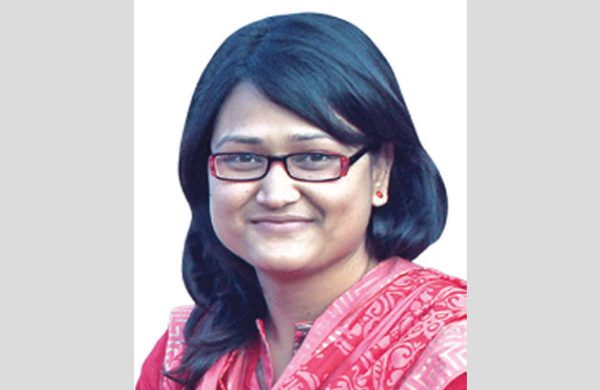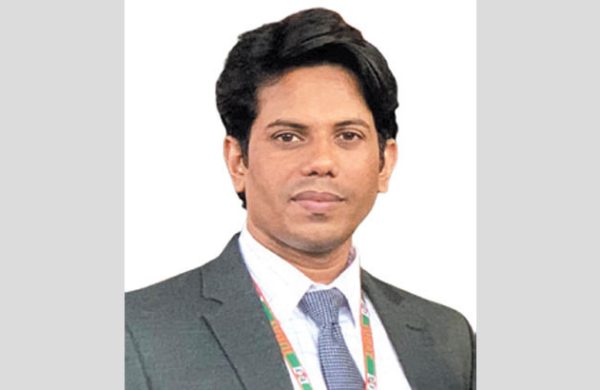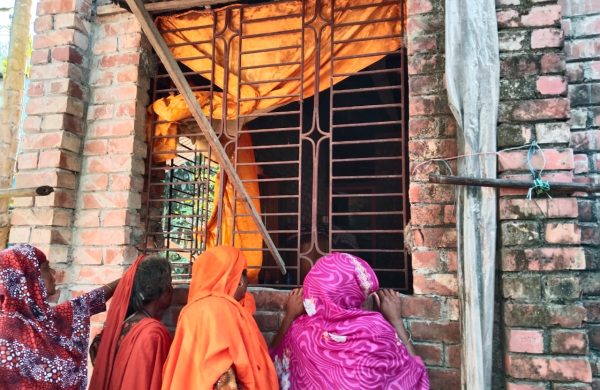Running on Empty
- Update Time : Saturday, July 26, 2025

—Kaniz Kakon—
You see it everywhere now, though no one really talks about it. It is in the hunched shoulders of the man who sells tea on the corner, in the dull eyes of a nurse who finishes her night shift and in the voice of the teacher who once spoke with warmth and now just goes through the motions. You do not need data or reports to notice it. We are tired. Not just at the end of the day, but all the time; quietly, deeply, in a way that no amount of sleep seems to fix. This is not just about being overworked. It is not the kind of tired that goes away after a weekend off. It is heavier than that. It is the kind of exhaustion that comes from carrying too much for too long, while pretending everything’s fine. From showing up again and again for systems that do not show up for you. From having to be strong, even when you are breaking. Somewhere between the unpaid bills, the unstable job, the pressure to perform and the constant reminder to “be grateful”—something inside us began to wear out. Not just the body, but the spirit.
We have become used to moving through our days half-aware. We smile because it is expected. We nod, we work and we scroll. But beneath the surface, people are running on fumes. Ask anyone how they are doing and you will hear it: “Chole jacche” (just getting by), “Bhalo na, bolte ichchhe kore na” (not good, but I don’t feel like talking). Dreams have become smaller; plans more cautious. You can see it in the students who no longer believe in their degrees, the workers who have stopped asking for fair treatment and the mothers who are always on edge but never allowed to rest. We are all tired, and we are not allowed to say it out loud because somewhere along the line, we started treating exhaustion as a sign of strength as if being burnt out is something to be proud of. We glorify working late, skipping rest and swallowing pain. We tell ourselves, “Everyone is struggling”, and wear our suffering like a uniform. But that uniform is getting heavier every day. And it is hiding something dangerous: the truth that we are not okay and that we have not been okay for a long time. Not individually, and certainly not as a nation.
I think of my students, for example. So many of them carry a kind of quiet panic—about their future, about their families and about being enough. They are told to achieve, compete and rise. But they are rarely told to breathe, or pause, or just feel. In homes, women hold up entire households while their own needs disappear in the background. And men, too, carry the weight of being “providers”, even when the means are slipping through their fingers. We all play our parts, and no one gets to step off the stage not without being called weak, lazy or ungrateful. And when a national tragedy strikes—be it a fire, a flood or an air crash—what do we do? We lower our heads, murmur condolences and keep going. No time to process. No room for rest. Just more pressure to carry on. Grief becomes something you schedule. Pain becomes something you hide. And when someone finally breaks, we act surprised. But what did we expect? You cannot build a country on the backs of tired people and expect them to walk forever.
We are told to be “resilient”—and we are. But even resilience has limits. Even the strongest person needs to lie down. Even the most committed worker deserves to be seen as a person, not just a producer. This is not just about individual burnout. It is about the culture we have created—one that expects people to keep giving, even when they have got nothing left to give. One where the value of a person is tied to how useful they are, not how human they are. It is time to ask: what would happen if we actually listened when someone said, “I’m tired”? What if we treated that not as a weakness, but as a warning bell? What if our workplaces cared more about people than performance? What if schools taught children not just how to score marks, but how to sit with their emotions? What if rest was seen as a right, not a reward? These are not utopian ideas—they are necessary ones. Because no nation can survive, let alone thrive, when its people are running on empty.
We need more than just motivational slogans. We need permission to pause. To slow down. To grieve what has been lost. To breathe. Because beneath all this exhaustion, there is still love. There is still potential. There is still community. But none of it will last if we do not take care of the people who carry it. I do not write this as someone with all the answers. I write this as someone who has felt the heaviness, who has seen it in others, who wants something better for us all. Maybe it starts with a small act—a workplace that gives someone a real break, a teacher who tells a student “you matter” beyond your grades, a parent who takes time for themselves without guilt. Maybe it starts with just telling the truth: that we are tired, but we do not have to stay this way. We can build something gentler. Not weaker—gentler. A society where dignity matters as much as development. Where people are not treated like machines. Where you do not have to be broken to be noticed. And where rest is not a luxury, but a part of life. Because in the end, it is not the loudest slogans or the biggest buildings that define a country. It is whether the people inside it feel seen, heard, and whole. And right now, too many of us are tired. That should be reason enough to stop, reflect and choose differently.
—————————————————————————-
The writer is an Assistant Professor in the Department of Philosophy at IUBAT and pursuing a Master’s in Human Rights and Multiculturalism at University of South Eastern Norway



















